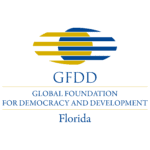Mario Vargas Llosa: Master of Creativity and Imagination
During a personal encounter, when I told Mario Vargas Llosa—the acclaimed Peruvian-Spanish writer—that I had been particularly struck by The Real Life of Alejandro Mayta, I noticed a hint of surprise in his eyes.
Perhaps he expected me to mention one of his more well-known novels, such as The Feast of the Goat, The Time of the Hero, The Green House, Conversation in the Cathedral, or The War of the End of the World—all considered not only exceptional works of Latin American literature but also of world literature.
But in truth, reading The Real Life of Alejandro Mayta had been such a mind-blowing experience that I was left dazzled. It is a political, postmodern novel that, through a blend of history and fiction, reconstructs the life of Alejandro Mayta, a Trotskyist revolutionary who took part in an uprising in the Andes.
The novel not only attempts to recount the life of its central character but, more importantly, explores the inconsistency of memory over time, the link between reality and fiction, and offers a critique of revolutionary utopias in Latin America.
It is undoubtedly a narrative aligned with the conservative ideology Vargas Llosa had embraced by the time of its publication in 1984. Nonetheless, from a literary perspective, it captivates the reader through suspense, intrigue, and emotional depth.
A Dialogue with García Márquez
Despite my fascination with the literary merits of Mayta, it wasn’t fiction that first drew me to Mario Vargas Llosa as a writer.
It was a brief book titled The Novel in Latin America, which captured a dialogue he held with Colombian writer Gabriel García Márquez in 1967, at the National University of Engineering in Lima, Peru.
In that revealing conversation between two literary giants, they sought to uncover the source from which novelists draw to create their fictional worlds.
The answer was simple: from their personal experiences. Both Vargas Llosa and García Márquez gave examples of how many of their works stemmed from vital life events.
The Time of the Hero wasn’t born out of mere inspiration. It’s set in the Leoncio Prado Military Academy, where Vargas Llosa’s father enrolled him to complete his high school years.
There, he experienced the alienating military culture of aggression and humiliation. Characters like “The Jaguar,” “The Slave,” and “The Poet” were real people, but reimagined by the author to construct his fictional narrative.
García Márquez made a similar confession. Many of his stories came from the tales his grandfather told him as a child. He even noted that the founding of Macondo in One Hundred Years of Solitude parallels a real-life event in which his grandfather killed a man and didn’t just move away—he founded an entirely new town.
In their dialogue, Vargas Llosa reflected that although personal experience is key to building a fictional universe, a writer also needs imagination and cultural influences.
This includes reading. So, which books and authors most influenced their development as novelists?
Both agreed on the foundational influence of chivalric novels. For García Márquez, it was Amadis of Gaul, while for Vargas Llosa, it was Tirant lo Blanc.
Then came the modern classics. Vargas Llosa listed his favorite authors as Alexandre Dumas, Victor Hugo, Gustave Flaubert, Jean-Paul Sartre, Albert Camus, and Simone de Beauvoir.
For García Márquez: Daniel Defoe, Franz Kafka, Virginia Woolf, William Faulkner, and Ernest Hemingway.
Their conversation ended on a shared conclusion: that a writer is always in conflict with society, and that literature has a subversive function.
Between Deicide and the Tribe
Four years after their dialogue in Lima, in 1971, Mario Vargas Llosa shocked the literary world with the publication of a dense volume titled García Márquez: Story of a Deicide.
There, he argued that “writing novels is an act of rebellion against reality, against God, against God’s creation—which is reality.”
The novelist is a dissident, someone who lives in a constant state of dissatisfaction. They cannot accept life as it is. They need to change reality, to create their own illusory world, their own verbal universe.
The novelist is a rebel—almost with a Luciferian madness—who needs to replace God and His creation in order to build a reality of their own. In short, a deicide.
In addition to being a great writer, Mario Vargas Llosa was also a political figure. He began as a Marxist, joining a political cell while studying law and literature at San Marcos University.
He later became disillusioned with the revolutionary project. A trip to the Soviet Union left him disenchanted. He broke with the Cuban Revolution after the case of the poet Heberto Padilla. In 1990, he ran for President of Peru on a conservative platform.
He distanced himself from Sartre’s existentialist philosophy and became a prominent ideologue of neoliberalism, answering the call of “the tribe” by aligning with intellectual figures like Adam Smith, Friedrich von Hayek, José Ortega y Gasset, Raymond Aron, Isaiah Berlin, Karl Popper, and Jean-François Revel.
In 2010, Mario Vargas Llosa was awarded the Nobel Prize in Literature. In 2022, he was recognized as a Dominican citizen. The last time we spoke was during a lunch at Don Pepe restaurant in the capital.
He passed away just a few weeks ago. His figure became, to the pride of all Latin Americans, a global reference. One might agree or disagree with his aesthetic, political, or ideological stances.
However, there is one thing no one can take from him: his exceptional intellectual brilliance.

